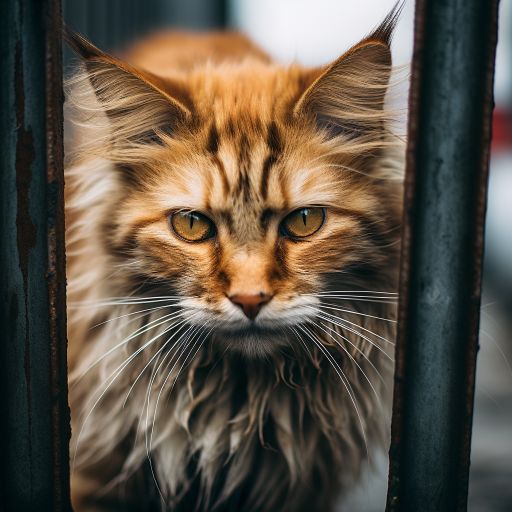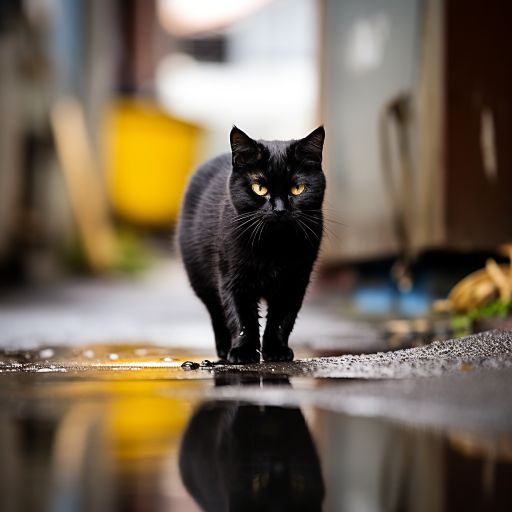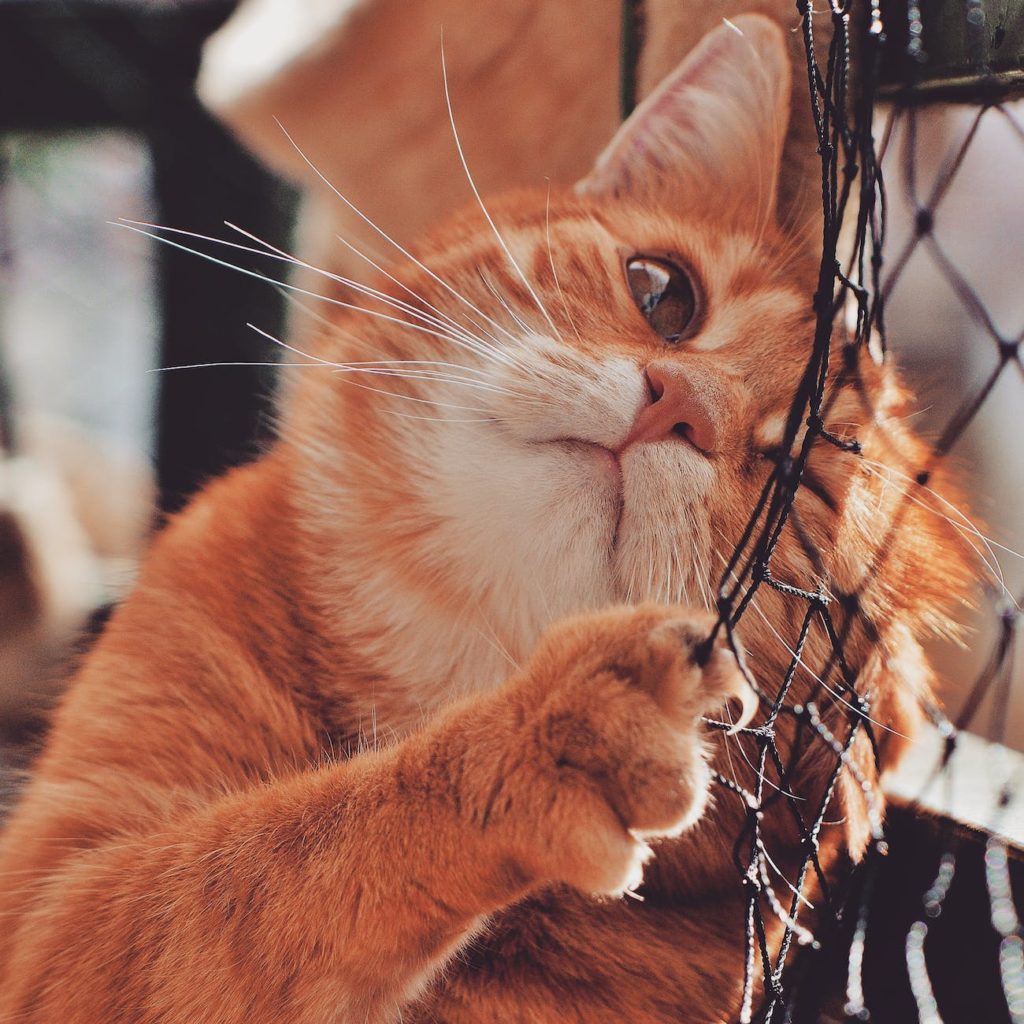Cat Might Be Acting Strangely
Cats are known for their strange and mysterious behavior. As a cat owner, you may have noticed your feline friend behaving in odd ways that you can’t seem to understand. While some of these behaviors may be normal, others could be signs of a health issue or underlying problem. In this article, we’ll take a closer look at some of the strange behaviors your cat may exhibit and what they could mean.
Live Pee Free! Odor Eliminator 100% Eliminates Pet Odor on Contact. 20% Off. No Enzymes, No Fragrance, No Detergent, No Bleach – Safe for Kids and Pets.Table of Contents
10 Fascinating Reasons Your Cat Might Be Acting Strangely
Introduction: The Enigmatic Nature of Cats
Cats are undoubtedly some of the most enigmatic companions you can have. Their charming purrs, playful antics, and spontaneous mood swings keep us both entertained and perplexed. However, it is not uncommon for cat owners to notice their feline friends behaving in bizarre ways. If your cat might be acting strangely, you are not alone. This blog post delves into ten fascinating reasons behind your cat’s curious behavior, shedding light on what might be going on in their feline minds.
1. The Mystery of Mood Swings
Cats are emotional creatures, and like humans, they experience mood swings. These fluctuations may result from various internal and external factors. Cat Might Be Acting Strangely. For instance, your cat might appear aloof one moment and affectionate the next. These changes in demeanor can often be perplexing, leaving you to wonder what could possibly be the matter.
Additionally, environmental changes can trigger these mood swings. A new pet, moving houses, or even rearranging furniture can disrupt your cat’s sense of security. Hence, if your cat might be acting strangely, first consider how their environment has shifted recently.
2. The Role of Territorial Instincts
Territory is integral to a cat’s sense of safety and comfort. Felines are instinctively territorial, and any perceived threat can lead to unusual behavior. Perhaps you noticed your cat suddenly becoming aggressive or overly protective of a specific area in your home. This behavior might stem from the introduction of a new animal or even unfamiliar human visitors.
Moreover, cats often engage in territorial marking. They might scratch, rub against surfaces, or even urinate in unexpected places to assert their territory. Hence, if your cat might be acting strangely, it might be an instinctual response to reclaim their space.
3. Health Issues: A Hidden Concern
One of the most crucial reasons your cat might be acting strangely could be underlying health issues. Cats can be experts at hiding their discomfort or pain, making it challenging for pet owners to detect potential problems. A sudden change in behavior, such as withdrawal from social interaction or changes in grooming habits, can indicate a health concern.
If you observe such behavioral changes, it is essential to consult a veterinarian. Cat Might Be Acting Strangely. Health issues ranging from dental problems to more severe conditions like hyperthyroidism can lead to significant behavioral changes. Early diagnosis often leads to better outcomes, so never hesitate to seek professional help.
4. The Impact of Stress and Anxiety
Stress or anxiety can significantly impact a cat’s behavior. Cats are creatures of habit, and any disruption in their usual routine, such as a new feeding schedule or a recent houseguest, can induce stress. Cat Might Be Acting Strangely. When stressed, cats may exhibit unusual behaviors, like hiding, excessive vocalization, or sudden aggression.
Additionally, cats can pick up on their owner’s emotions. If you are feeling anxious or stressed, your cat may mirror those feelings. Understanding the triggers of stress and providing a stable environment can help alleviate your cat’s anxiety and improve their behavior.
5. Hunger: The Hidden Hunger Games
Sometimes, your cat might be acting strangely due to hunger. It may sound simplistic, but a cat deprived of food can become irritable and mischievous. If your cat is more vocal than usual or exhibits odd behaviors like knocking things off tables, it may be trying to communicate its hunger.
Additionally, if you recently changed your cat’s diet, they might react unpredictably. Cats can be sensitive to dietary changes, and a new food might not sit well with them. Always keep an eye on feeding times and ensure your cat is receiving the proper nutrition they need.
6. The Need for Stimulation
Cats are intelligent and curious creatures that require mental and physical stimulation. When deprived of playtime or interactive toys, your cat might resort to strange behaviors out of boredom. They may start pacing, meowing excessively, or even engaging in destructive behavior.
To counteract this, provide engaging toys, scratching posts, and interactive play sessions. Playing with your cat not only helps satisfy their need for stimulation but also strengthens your bond. Therefore, if your cat might be acting strangely, consider adding more enrichment to their daily routine.
7. Changes in Sleep Patterns
Cats are known for their love of sleep, typically snoozing for 12 to 16 hours a day. However, changes in their daily sleep patterns can cause unusual behaviors. Cat Might Be Acting Strangely. If your cat suddenly becomes hyperactive at odd hours or insists on waking you up at 3 AM, it may be experiencing disrupted sleep cycles.
Various factors can contribute to this, including changes in household activity levels, age, or health issues. Senior cats, for example, may experience altered sleep patterns due to age-related conditions. Cat Might Be Acting Strangely. It’s essential to observe your cat’s sleep habits and discuss any significant changes with your veterinarian.
8. Seeking Attention
Your cat might also be acting strangely as a means of seeking your attention. Cats are social animals, and they thrive on interaction with their owners. If you’ve been preoccupied or away from home more often, your cat might engage in unusual behavior to get noticed.
This could manifest as excessive meowing, jumping on counters, or knocking over objects. To solve this issue, dedicate time each day to interact with your cat. Cat Might Be Acting Strangely. Simple activities like cuddling, grooming, or playing can go a long way in satisfying their need for companionship.
9. Exploration of Senses
Cats are naturally curious and often act strangely as part of their exploratory behavior. They tend to investigate new objects, scents, or sounds in their environment. If you’ve recently brought home a new item, your cat might exhibit odd behavior, such as sniffing, pawing, or hiding inside boxes.
This curiosity can also lead to amusing or bewildering antics. Cat Might Be Acting Strangely. For example, they might chase after invisible prey or pounce on shadows. Understanding your cat’s exploratory nature can help you appreciate these strange moments instead of worrying about them.
10. The Influence of Age
Finally, age plays a significant role in how your cat behaves. Kittens are often more energetic and prone to mischief, while older cats might display different behavioral patterns. Cat Might Be Acting Strangely. Senior cats, for instance, may become more sedentary or exhibit signs of confusion or cognitive decline.
It’s essential to adapt your care approach as your cat ages. Providing proper medical care, a stable environment, and mental stimulation can help keep your senior cat healthy and engaged. If you notice unusual behavior related to aging, consider discussing geriatric care with your veterinarian.

Understanding Your Feline Friend
In conclusion, if your cat might be acting strangely, it is essential to observe their behavior with an open mind. A myriad of factors—from health concerns to environmental changes—can contribute to their peculiar antics. By understanding the reasons behind their behavior, you can enhance your cat’s quality of life and strengthen your bond. Always remember to provide a supportive and stimulating environment tailored to your feline’s unique needs.
Additional Points to note
- 1. Hiding or Avoiding Contact
If your cat is hiding or avoiding contact with you, it could be a significant sign that something is wrong. Cats are inherently curious creatures, but when they feel unwell or scared, they often seek refuge in a hidden spot. Cat Might Be Acting Strangely. Observing any changes in your cat’s behavior is crucial, as these alterations can indicate underlying health issues or emotional distress.
For instance, if your cat usually enjoys sitting in your lap but suddenly chooses to retreat to another room for an extended period, it might be time to consider a visit to the vet for a thorough check-up. Common reasons for hiding include illness, stress from changes in the environment, or even the presence of new pets or visitors in the home. Paying attention to these signs can help ensure your feline friend remains happy and healthy, and addressing their needs swiftly can prevent further complications down the line.
- Illness: Cats often hide when they are feeling unwell.
- Stress: Changes in the household, such as new pets or moving, can cause stress.
- Fear: Loud noises or unfamiliar visitors can make cats seek a safe hiding spot.
2. Excessive Grooming
Cats are renowned for their meticulous grooming habits, using it as a way to keep their fur clean and to regulate their body temperature. However, if you notice that your cat is grooming excessively, it might indicate underlying stress or anxiety. Cat Might Be Acting Strangely. Over-grooming can lead to significant issues such as hair loss, skin irritations, and infections. Therefore, it’s crucial to address the root cause of this behavior promptly to safeguard your cat’s health.
Several potential triggers for excessive grooming exist, including changes in the environment, such as moving to a new home or the introduction of a new pet. Additionally, boredom or lack of stimulation can lead cats to groom compulsively as a way to cope. Medical conditions, such as allergies or skin infections, may also contribute to this behavior. Observing your cat’s habits closely and consulting a veterinarian when needed can help provide relief for your furry friend and restore their peace of mind.
- Allergies: Food or environmental allergens can cause itchiness.
- Parasites: Fleas or mites may cause your cat to over-groom.
- Psychological: Stress or boredom can lead to obsessive grooming habits.
3. Aggression
Aggression in cats can be a troubling behavior, especially if your typically docile feline suddenly becomes hostile. This shift may serve as a signal indicating a potential health issue or an emotional disturbance that needs to be addressed. Cat Might Be Acting Strangely. Cats can display aggressive behaviors for a variety of reasons including pain, fear, or stress. It’s crucial to pay careful attention to your cat’s overall demeanor, as well as any changes in their routine, eating habits, or interaction with their environment.
Observing their body language—such as flattened ears, a twitching tail, or hissing—can provide valuable clues to their emotional state. If your cat continues to act aggressively, or if their behavior escalates, seeking veterinary care is imperative. Cat Might Be Acting Strangely. A veterinarian can help determine if there are any underlying medical conditions or behavioral problems that need to be resolved, ensuring your beloved pet receives the appropriate treatment and care. Common triggers include:
- Pain: Injuries or illnesses can cause irritability.
- Territorial Behavior: New animals or changes in the environment can provoke aggression.
- Fear: A cat might react aggressively if they feel threatened or cornered.
4. Changes in Eating or Drinking Habits
Notable changes in your cat’s eating or drinking habits can often indicate a health issue or an underlying problem that requires attention. If your feline companion suddenly stops eating or drinking, it might suggest a serious illness, making it crucial to contact your veterinarian as soon as possible. Cat Might Be Acting Strangely. Other signs to watch for include a sudden increase in appetite, excessive drinking, or even changes in the type of food they prefer.
Cats can be quite sensitive to stress, changes in their environment, or dietary shifts, which can lead to alterations in their routine. Moreover, if your cat appears lethargic, vomits, or shows signs of discomfort, these could all point towards an underlying health concern. Early detection of these changes can make a significant difference in your cat’s health outcome, so engaging with your vet promptly is always the best course of action to ensure your furry friend remains happy and healthy. Potential causes include:
- Dental Issues: Pain from dental disease can make eating difficult.
- Kidney Disease: Increased or decreased thirst can be a symptom.
- Digestive Problems: Conditions like pancreatitis or gastrointestinal obstructions.
5. Litter Box Problems
If your cat suddenly starts avoiding their litter box, it could be a sign of a health issue or an underlying problem. Cats are known for their cleanliness, so if your feline friend begins to show reluctance or refuses to use their litter box, it’s crucial to address the issue as soon as possible. Cat Might Be Acting Strangely. Changes in restroom habits can indicate various concerns, such as urinary tract infections, feline lower urinary tract disease, or even stress-related issues.
It’s essential to observe if your cat is displaying any other unusual behaviors, such as hiding, excessive grooming, or changes in appetite. Cat Might Be Acting Strangely. Additionally, the litter box environment plays a significant role; make sure it is clean and located in a quiet, accessible area. If the problem persists, a visit to the veterinarian is advisable to rule out medical conditions and to receive guidance on how to encourage your cat to return to their litter box. Reasons for litter box avoidance include:
- Urinary Tract Infections: Painful urination can cause cats to associate the litter box with discomfort.
- Stress: Changes in routine or environment can affect litter box habits.
- Dirty Litter Box: Cats may avoid using a litter box that isn’t clean.

6. Excessive Vocalization
If your cat is meowing excessively, it could be a sign of stress or anxiety. Cat Might Be Acting Strangely. While some cats are naturally more vocal than others, excessive meowing can be a sign of an underlying problem. Potential reasons for increased vocalization include:
- Attention-Seeking: Some cats meow to get their owner’s attention.
- Hunger: Ensure your cat is receiving enough food.
- Medical Issues: Conditions like hyperthyroidism can cause increased vocalization.
7. Destructive Behavior
If your cat is suddenly destroying furniture or other items in your home, it could be a sign of stress or anxiety. Cat Might Be Acting Strangely. Destructive behavior can be caused by a variety of factors, including boredom, anxiety, or a lack of stimulation. Common triggers for destructive behavior include:
- Boredom: Ensure your cat has plenty of toys and activities.
- Separation Anxiety: Cats can become destructive when left alone for long periods.
- Territorial Marking: Scratching can be a way for cats to mark their territory.

In Conclusion
Cats are known for their strange and mysterious behavior, but it’s important to take note of any changes in your cat’s behavior. If you notice any of the above behaviors in your cat, it could be a sign of a health issue or an underlying problem. Cat Might Be Acting Strangely. Make sure to observe your cat’s behavior closely and seek veterinary care if necessary. Regular vet check-ups, providing a stimulating environment, and understanding your cat’s needs can help ensure your feline friend remains happy and healthy.



